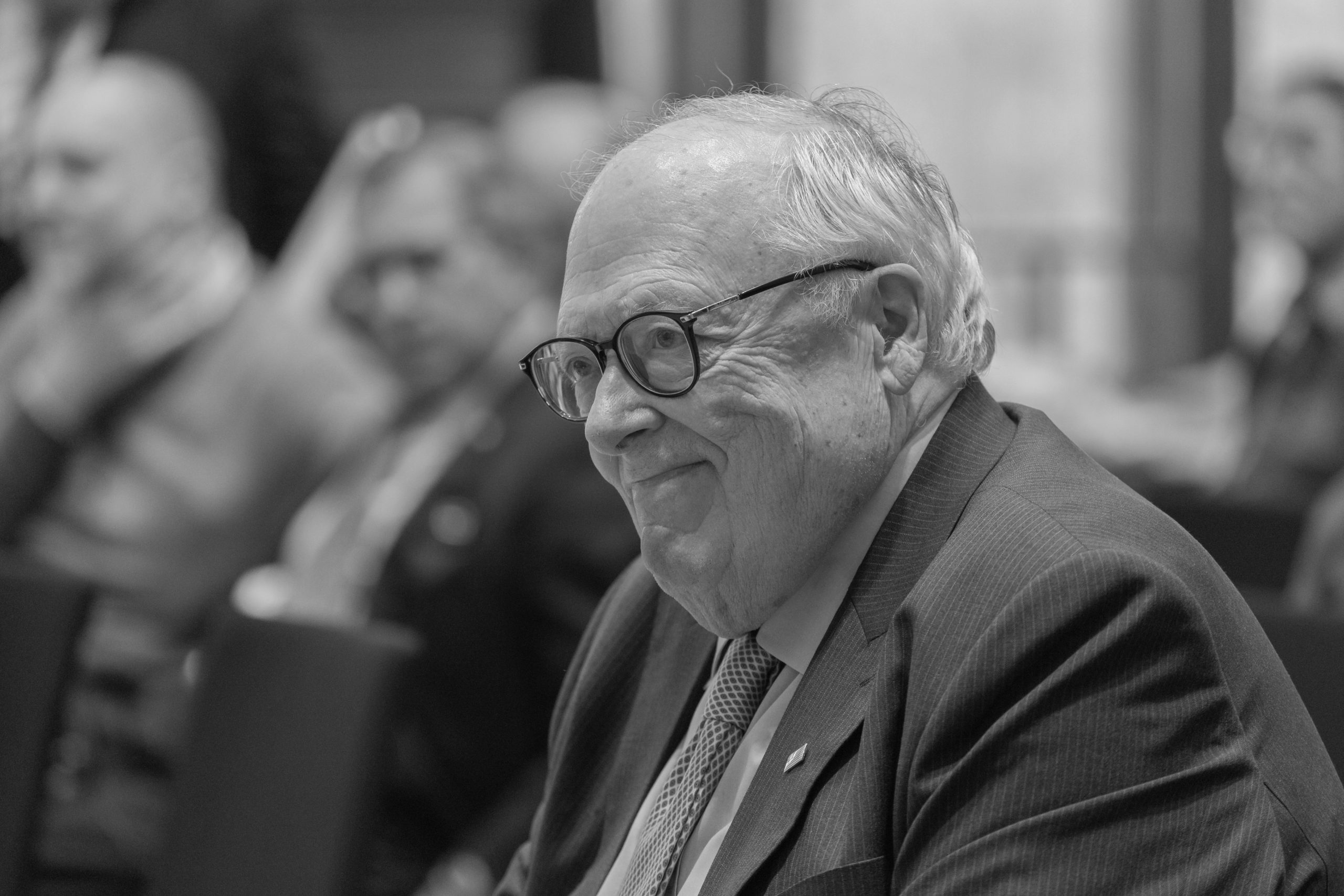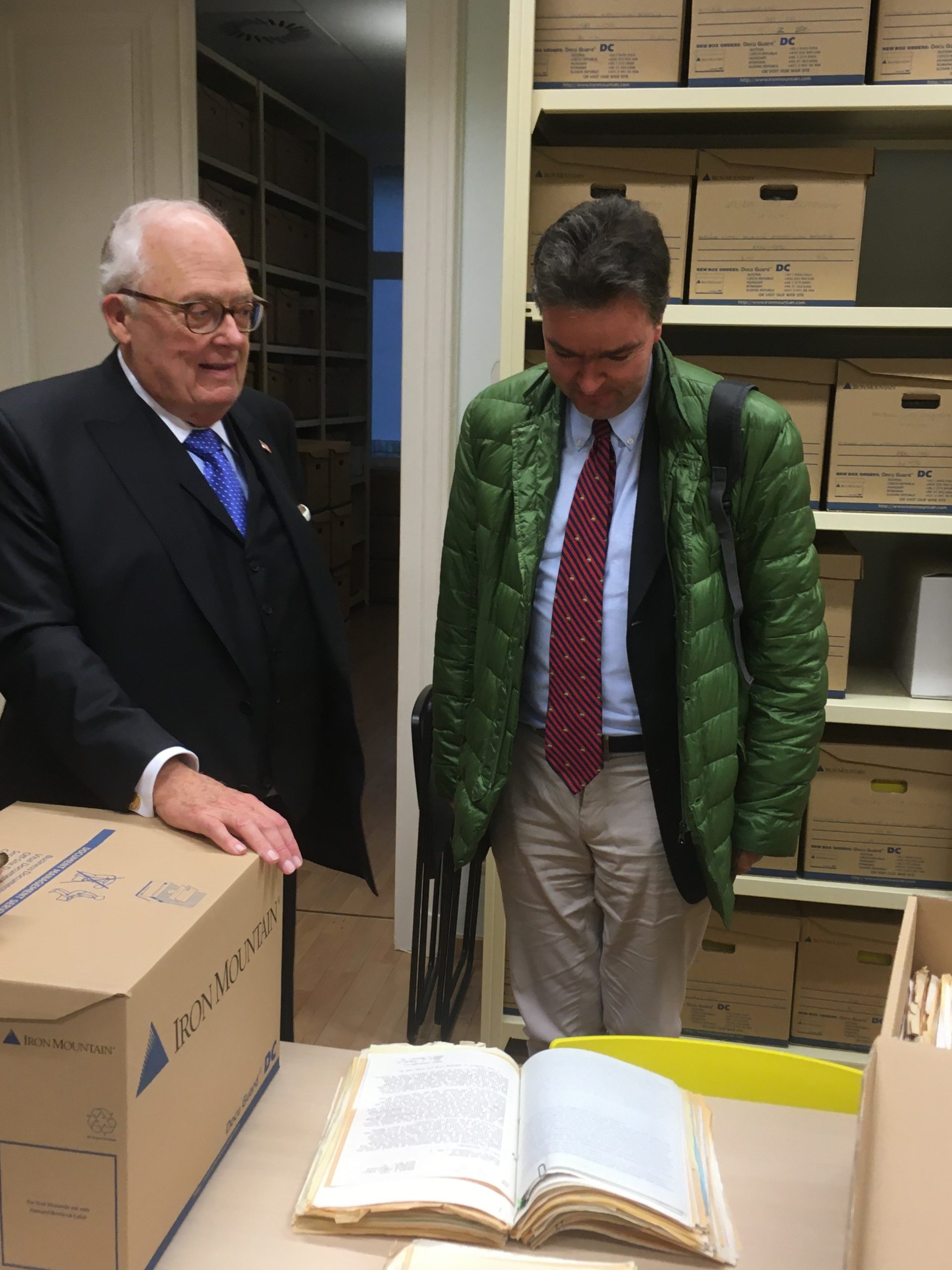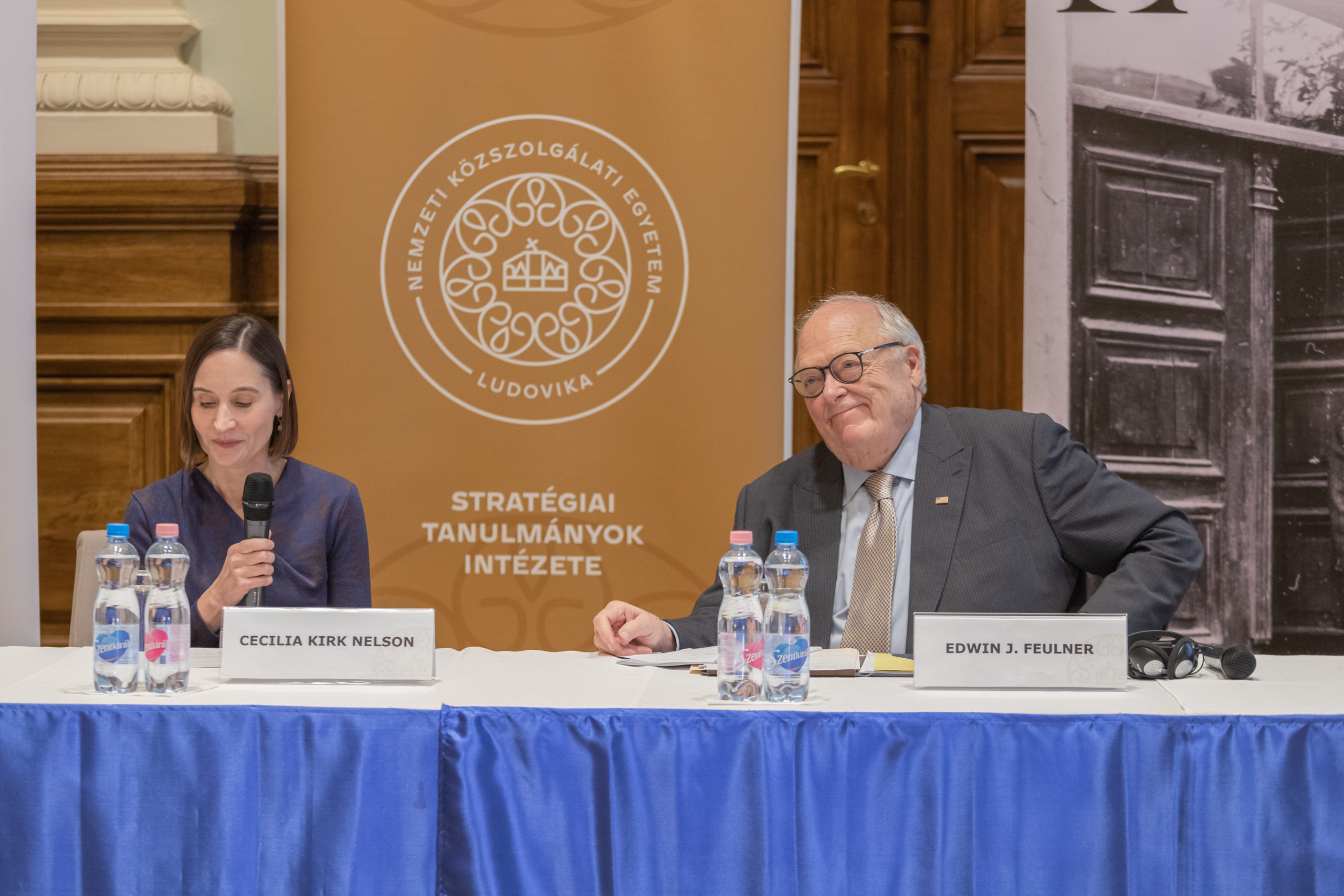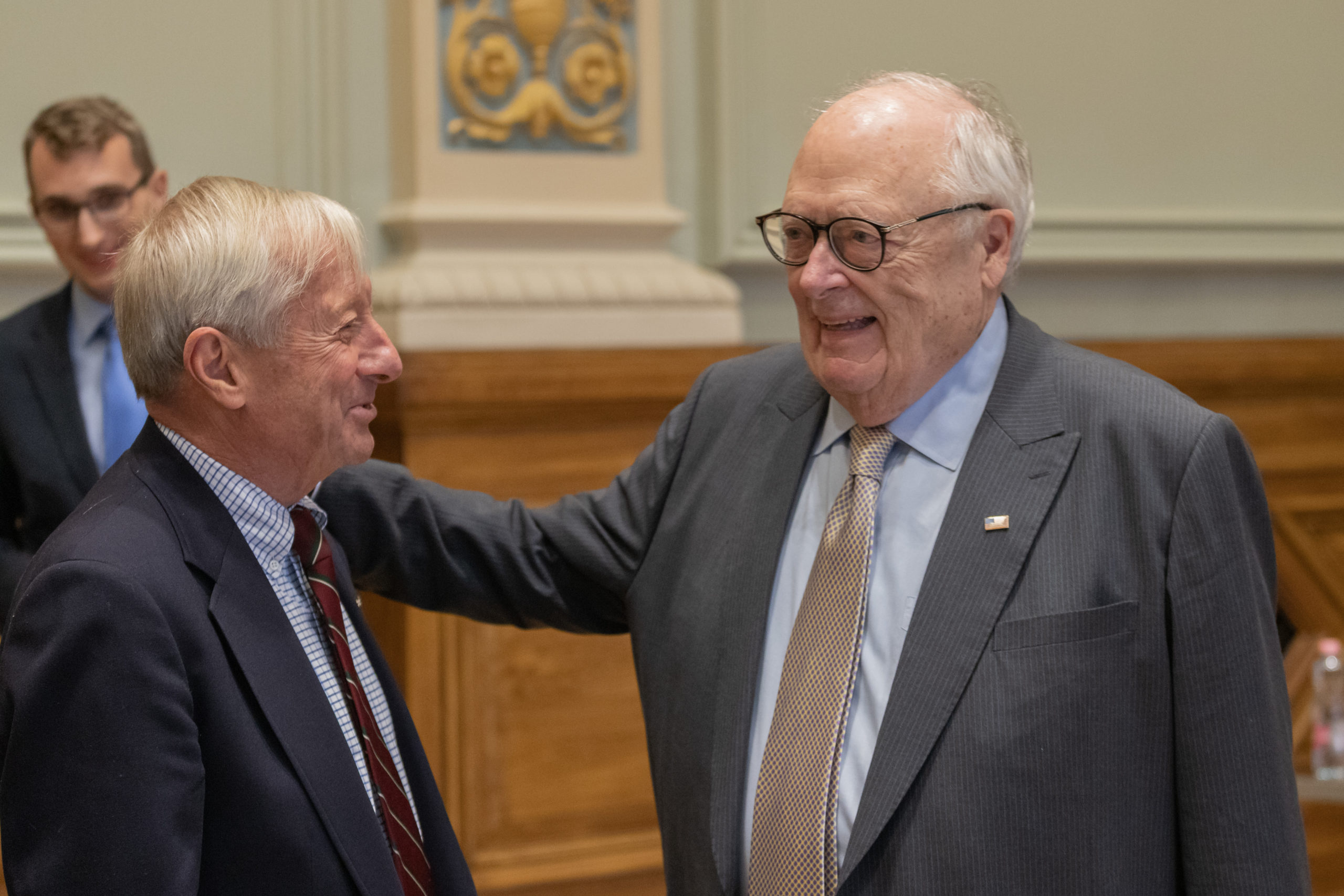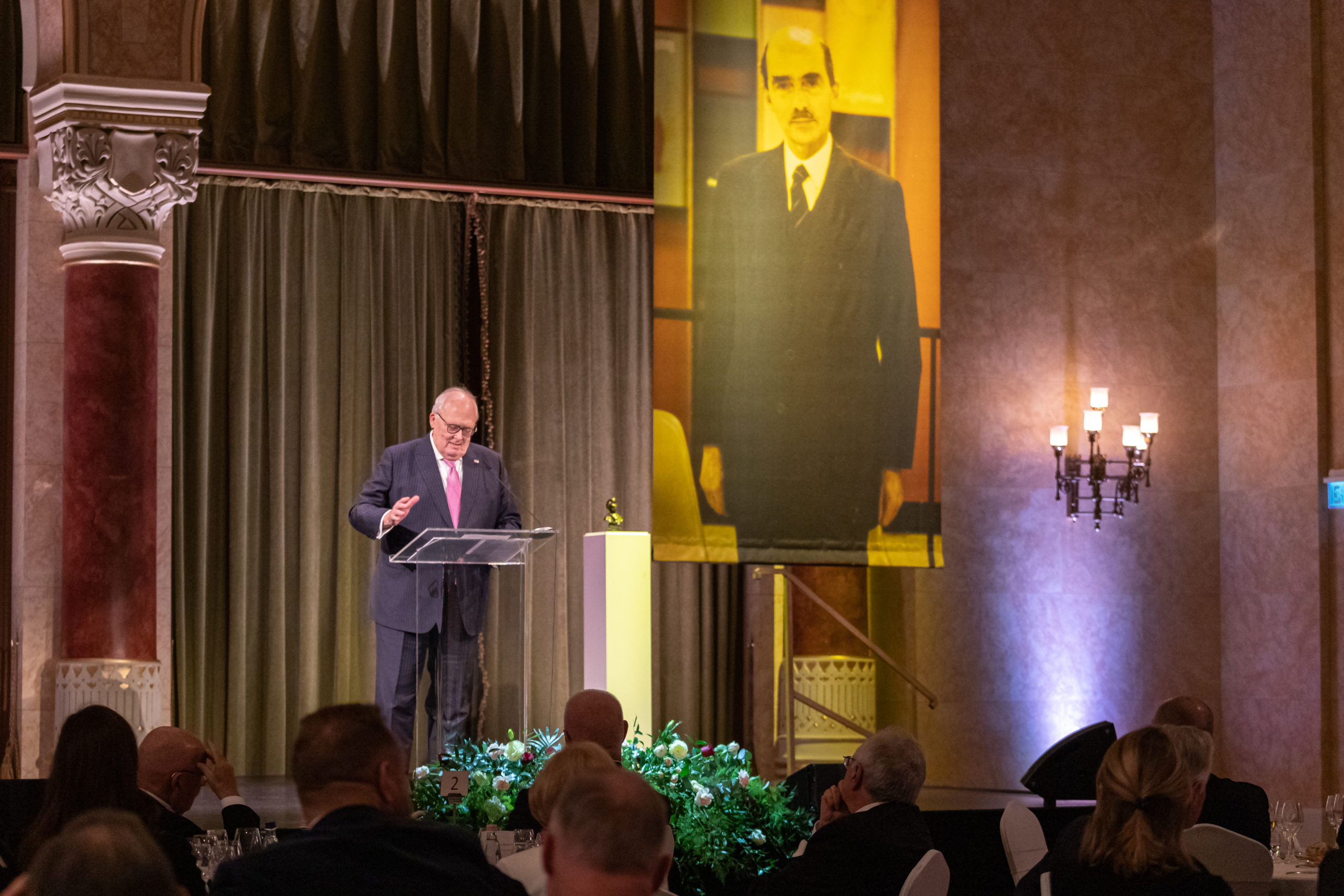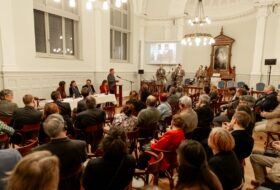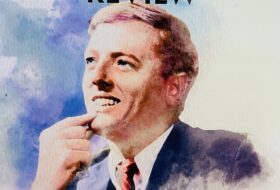I have recently reread John Bunyan’s 17th-century allegory, The Pilgrim’s Progress, where the final chapter opens with an invocation from Saint Paul’s second epistle to Timothy: “I have fought the good fight, I have finished the course, I have kept the faith.” It was the apostolic account that immediately came to my mind upon learning of the passing of Edwin Feulner, as his oeuvre and decades of public service were more than just a secular career; above all, he fulfilled a mission carried out with a Pauline spirit and deep commitment.
Born in 1941, Feulner was perhaps one of the few remaining representatives of a generation that profoundly influenced 20th-century American conservatism, playing a key role in uniting diverse factions and renewing Republican political practices. Although he never held formal political office, he was a true public icon who, among his many other positions, led The Heritage Foundation for decades, turning it into one of the most influential think tanks in the United States. The organisation, which not only excelled in mobilising its own political community and decision-makers but also was a cardinal participant in shaping the political programmes of the Reagan administration and subsequent Republican administrations, advanced over the years to become an indispensable international reference point for conservative policy-making.
His dedication and far-sighted thinking probably impressed Otto von Habsburg from their very first meeting. In 1965, during a summer university stay in Salzburg, following the recommendation of Don Lipsett, founder of the Philadelphia Society, Erik von Kuehnelt-Leddihn, an adventurous polymath who was a close friend of our namesake, and Thomas Chaimowicz, a philosopher from Salzburg, Feulner sent a letter to the former heir to the Austrian throne, requesting a meeting with him and also commissioning him to write an article. The following year, Otto von Habsburg addressed the unsustainability of communism in his writing, entitled “The Effects of Communism on Cultural and Psychological Politics in Eastern Europe,” published in the Intercollegiate Review. The paper, which attributed the crisis of left-wing dictatorships to social erosion and a kind of moral exhaustion rather than economic factors, resonated strongly with American Republicans and remained a source of inspiration and intellectual ammunition for conservative political thought for years to come. The essay also marked the beginning of a lasting friendship and collaboration between Otto von Habsburg and Edwin Feulner.
Edwin Feulner and Georg von Habsburg in our Foundation’s Archive in November 2019
Beyond their staunch anti-communism, one of their most striking common traits was that they were both politicians in the true spirit of the word: they had a genuine sense of responsibility for the affairs of the “polis”, while being able to rally significant social support for causes they considered important. For them, conservatism was not an intellectual reverie about the past, but a pragmatic defence of Russell Kirk’s “permanent things.” However, their practical approach was free from narrow-minded and simplistic populist logic; their thinking was defined by a value-based approach that viewed conservatism primarily as a tradition rooted in morality and culture, rather than an ideological line that adapted to changing political trends and passing fads. This perspective did not see the essence of politics in Koselleck’s asymmetrical oppositions or the struggle between irreconcilable camps, but instead represented an inclusive and integrative approach that – and this may seem surprising amid the ideological polarisation of our times – was able to conform conservative values with liberal economic views.
Their mutual sympathy was reinforced by both their dedication to common causes and their similar personalities. In addition to their exceptional work ethic, they were also united by their unwavering optimism. The latter was vividly described by the current president of The Heritage Foundation, Kevin Roberts, in his obituary: “Ed seemed immune to discouragement. For him, every day was a new opportunity to fight for freedom, advance America’s promise, and make it a reality for everyone.” Edwin Feulner’s drive and dynamism – like our namesake’s motto, “Nicht geschossen ist auch gefehlt” (“If you do not shoot, you will never score”) – did not stem from naivety, but from a deep conviction that persistent, purposeful, and values-driven action can shape history.
However, this ideological consensus did not preclude discrepancies in emphasis, which occasionally manifested themselves quite markedly. Although both contributed significantly to building transatlantic relations, they often assessed the global political situation differently, even though they both firmly rejected isolationist tendencies and unequivocally supported maintaining and strengthening the alliance system.
Edwin Feulner was a highly esteemed supporter of our Foundation: besides his visits in November 2019 and March 2022, he participated in our conference, “Conservative Minds”, which examined European and American political and intellectual interconnections, and was the keynote speaker at the annual Otto Dinner that followed. In May of this year, he made a valuable contribution to our conference, “Yalta or Helsinki?”, with a welcoming address. His generous patronage was a real inspiration to us all. Through his lectures, writings, and conversations, we gained a wealth of knowledge about history, politics, networking, and the nature of conservatism. We came to know him as a man who saw public engagement as a vocation, not as a means of self-realisation or profit. At the same time, the natural ease of his directness and humour made everything he stood for vivid and credible.
“Conservatism is far more than a resistance to disorder — it is a promise, a calling, a duty to preserve what is good and cultivate what is enduring,” reads the conclusion of a joint article with former Vice President Mike Pence published in National Affairs a few weeks ago. Edwin Feulner fulfilled his mission in this spirit – even when he had to oppose, in his usual subtle and intellectual manner, his own political side and its leader recently. He had fought the good fight, finished the course, and kept the faith. He has returned to his Creator, but his spiritual legacy and the words of encouragement he often repeated at the end of his letters continue to give us strength and hope to take on the challenges that lie ahead: “Onward. Always!”
Bence Kocsev
